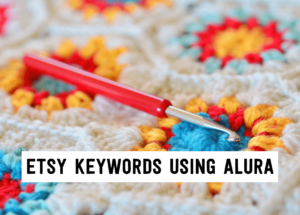
How to find the best Etsy keywords in 3 simple steps using Alura
If you want to be found in search results on Etsy, you need to optimize your product listing for SEO. And if you want to
join
One area of handmade selling that a lot of handmade business owners don’t hear much about is private label products.
Or maybe you’ve heard of them, but you think of them as something that big box stores buy from ginormous factories to resell with the big box store name on it, like batteries for example.
But believe it or not, private label products can also be a good opportunity for handmade sellers, and can be a very profitable and successful business model!
In this week’s article I’m going to talk about everything private label: what it is, how you can make and market private label products, and why you might even want to sell them as part of your handmade product lines!
So, ready? Let’s dive in.
So first let’s define what a private label product is.
A private label product is a product that a retailer purchases from a third party, then sells it under its own brand name. The retailer gets to specify everything about this product- such as the packaging, what goes in it, and what the label says.
For example, Target stores have named their private label brand for home goods called “Up&Up.” So you might go to the toilet paper section and next to the normal brands that you see in other grocery stores, there will be “Up&Up” brand toilet paper. So Target has a contract with a toilet paper manufacturer somewhere to make this toilet paper, package it for them, and then a label gets put on it that says “Up&Up Toilet Paper.”
Another big example of private label outside of the handmade world is on Amazon: a lot of stuff that’s sold on Amazon is actually private label; people buy stuff that’s manufactured overseas, in China for example, with no branding attached and then they resell it on their own Amazon store under their brand name and make a profit on it.
I think examples like these are what many handmade sellers think private label is, and why you might not think of private label as something that YOU could do in your own handmade business.
One smaller version of private label that you might be familiar with is in the beauty niche. There are a lot of spas, beauty salons, nail salons, and hair salons that have started selling their own beauty products.
They buy a product that fits their niche, like soap or essential oils, and then they put their brand on it so that it feels like you’re buying the soap from the spa or from the salon.
Private label can happen on an even smaller scale. If I wanted to start selling Tizzit products, for example, I could contract with an essential oil candle maker, buy energizing peppermint and calming lavender candles, and sell them under the Tizzit brand name on my website.
(because we all know that handmade shop owners need energy on some days and calming on others, right?!)
Now you may be listening to this and be a bit intrigued, but may be wondering how YOU as a maker or handmade shop owner could make money this way, so let’s talk about that.

FREE WORKBOOKS, CHEAT SHEETS, AND RESOURCES TO HELP YOU START, GROW AND PROFIT FROM YOUR HANDMADE BUSINESS.
There are two ways to make money using private label products: buying them to resell, or selling your products as private label to other retailers.
The first way is adding private label products to your handmade shop. Many shop owners don’t realize the benefits that private label products can bring to their craft business – and their profits!
Let’s say you make personalized luxury bath towels and you want to add some spa stuff to your store, like candles and soap, because they go so well with a luxury bath towel and that whole luxury bathroom experience or “at home spa” experience that your customers are looking for.
But. . . you don’t have the experience, the know-how, or the time to learn how to make candles or soap. So a great option for you would be to buy private label soap and candles from another handmade seller and sell them in your shop with your brand on it!
Or maybe you sell a line of lifestyle t-shirts, and you would like to fill out your product line with jewelry that compliments your t-shirts. So you might look for someone who makes private label jewelry that has a style you like, and sell it under your brand along with your shirts.
The beauty of the private label option here is that you can focus on things that you’re actually a master at, but also increase your sales by having more complete and complementary product offerings.
In addition to adding variety to your shop it’s also a great way to scale your business. We all know that in the handmade industry in particular you’re limited by how long it takes you to make a product and at some point your revenue is going to be capped by how many hours in the day you can actually afford to spend making the products that you want to sell.
So to scale you’re eventually either going to need to hire help with your production or you need to outsource it entirely via something like private labeling. So private label gives you an option to drive more revenue without investing in hiring, training, production facilities, and the like.
You may feel a bit nervous about the private label option because you don’t know how to go about finding one, but don’t fret— finding a private label product to sell in your handmade shop is as simple as a Google search.
Let’s keep going with our two examples above, and say I’m the shop owner looking for private label candles and soaps to sell with my luxury bath towels.
I went to Google and typed in “private label soap” and this page on Faire.com came up:
Next, I Googled “private label candles” and found this cute website with beautiful candles:
Next let’s move to our example of the handmade seller looking for jewelry to sell with their lifestyle t-shirts. I typed in “private label handmade jewelry” and here is one example of what I found:
Each time I searched, I typed in “private label handmade” plus the product type – like soap or candle – on Google, and I found dozens and dozens of sellers like the ones pictured above.
I tried all sorts of products: laundry products, pet products, shampoo, bath bombs, candles – you name it! – and I always found handmade businesses with beautiful products that you could sell under your business name.
So it really just takes a little time and some research on Google.
Once you’ve identified some private label products you are interested in selling, there are a few things to keep in mind when deciding which products are the best ones for you to sell.
The first thing to consider is if the product is a match with your brand. This is not about how they are packaged or if the logo looks good because that’s all going to be yours once you put your brand on it. It’s more about the details – the ingredients, the place it’s made, what the product itself looks like – and seeing if those details are a match for your business.
So for example, if your handmade shop is all American made or all Australian made and that is a value that’s important to you then you definitely want to find a handmade supplier that’s American or Australian. Or if your products are all organic, then you want the products you buy to be organic as well.
You will want to think about the reliability of the seller as well. In general, you need to make sure that the supplier you’re considering has been around for a while and has good customer reviews. This is most important if you will be selling a large percentage of handmade products, but even if you only plan to sell a small amount of private label products you still want to do a little bit of background research on the business you’re considering to make sure they will be reliable and send good quality products.
Now I bet some of you may be worrying and thinking “but then it’s not really handmade if I’m not even making the products myself”— but the reality is, it is handmade
Think of it this way, if you expanded your business and hired an employee to make the product for you, you wouldn’t feel this way, right? This scenario is really no different, you are outsourcing and having someone hand make certain products for you.
Next let’s talk about selling your own products as private label. So for example let’s say you make soap, and you sell it in your handmade store.
One way to expand your business would be to also sell your soaps wholesale OR private label.
We’re all pretty familiar with the idea of selling wholesale… when you sell as a private label, the key difference is that you don’t brand your products and you enter a private label agreement with your retailers instead.
So this is a very real option to diversify your revenue streams that you might want to consider.
Now I know that deciding what products you want to sell and how you want to go about selling them are very important decisions, so in addition to this private label article I also have one about planning your handmade product line and one about the top mistakes to avoid with your handmade product collections that will help you decide which products you want to sell in your handmade shop!
Thanks for reading, and until next time, aurevoir!
you might also like…
related articles

If you want to be found in search results on Etsy, you need to optimize your product listing for SEO. And if you want to
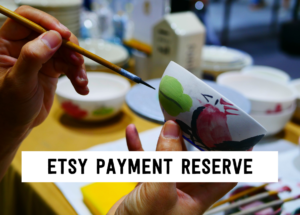
There has been a lot of talk in the Etsy community — and I mean A LOT of talk — about Etsy’s payment account reserve
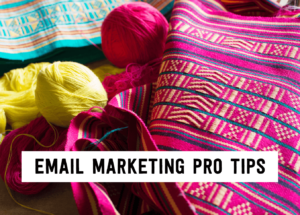
Anyone who knows me knows that I am a HUGE advocate for using email marketing to grow and scale your handmade business. But you may
Sign up below and get instant access to a collection of FREE practical guides, workbooks, and checklists that will help you start, grow and profit from your handmade shop. (without pulling your hair out!).
disclaimer
subscribe to youtube
become a member
get in touch
We acknowledge and give thanks to the Budawang and Yuin people, the Traditional Owners of the land we work and live on. We pay our respects to all Aboriginal and Torres Strait Islander Peoples and elders past, present and emerging.
4-step Maker’s Roadmap System
Library of In-Depth Courses and Training
Live Monthly Coaching Sessions
A Supportive Online Community
close
We hate spam too. Unsubscribe at any time.
close
We hate spam too. Unsubscribe at any time.
close
We hate spam too. Unsubscribe at any time.
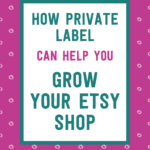
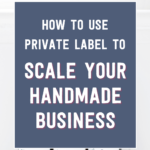

Get Instant Access to
The FULL Resource library